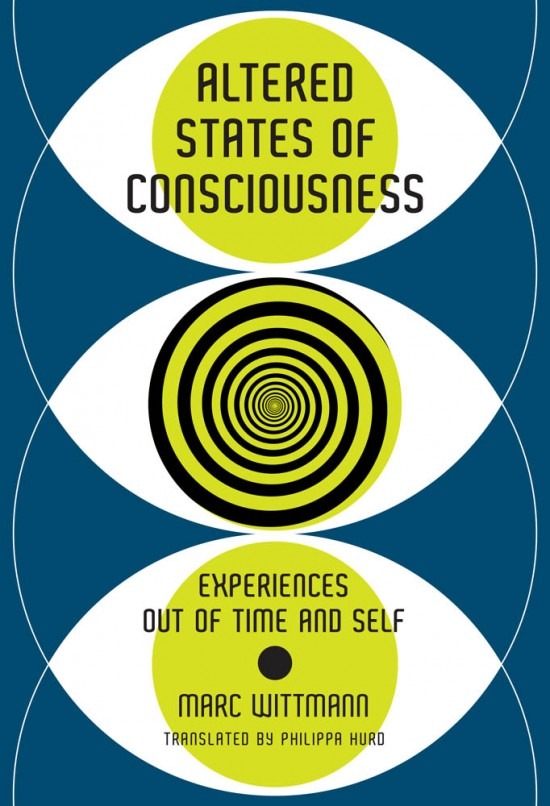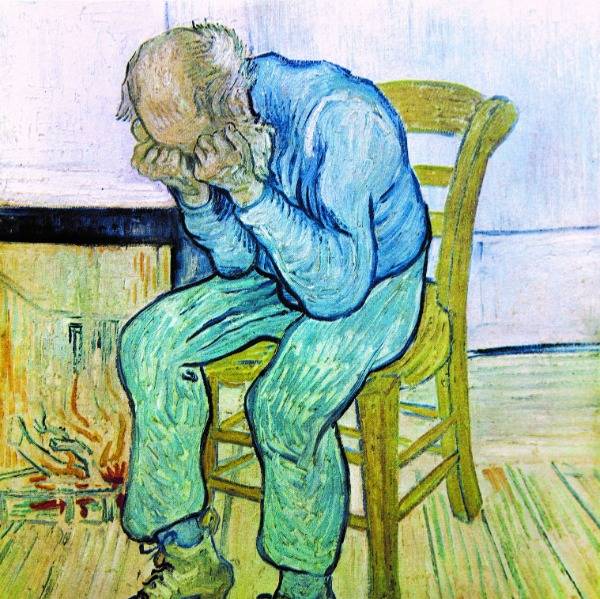
In certain conditions - shock, meditative states and sudden mystical revelations, out-of-body experiences, or drug intoxication - our senses of time and self are altered; we may even feel time and self dissolving. These experiences have long been ignored by mainstream science, or considered crazy fantasies. Recent research, however, has located the neural underpinnings of these altered states of mind. In his new book "Altered States of Consciousness: Experiences out of Time and Self" (MIT Press), neuropsychologist Marc Wittmann, Research Fellow at the Institute for Frontier Areas of Psychology and Mental Health in Freiburg, Germany, shows how experiences that disturb or widen our everyday understanding of the self can help solve the mystery of consciousness. Here, he discusses his arguments.
What brought you to this subject matter?
A thread through all my research is time perception. That's how I started with my PhD: looking at time perception in patients with brain injuries and how their time perception changed. Then I stayed on this, looking at time perception in psychiatry, neurology and in healthy individuals – look at questions like, why does time pass as we get older. Increasingly, I looked at this area of non-ordinary states of consciousness, and found in these altered states of consciousness that time is massively distorted. Through probing and testing a variety of states of consciousness – during meditation, on drugs – you have a means to really find out what consciousness is about, and what time is about. Probing altered states of consciousness is interesting in itself but it is also a means to solve really big questions: what is consciousness, how does consciousness function, and what constitutes subjective time?
How would you define an altered state of consciousness?
A non-ordinary state which is not our usual waking state and which does not occur very often. You could say there are some states which appear more regularly - what do you do with dreams for example? Dreams occur regularly, for some people every night. So this is not a very clear distinction from ordinary states of consciousness. But it basically means rare cases which you could apply through different induction techniques, which could be drug related, or psychological inductions like meditation, or other methods - getting into a trance. There are many ways to get into other states of consciousness which are deviant from the normal ordinary state of consciousness.
How did you select which altered states of consciousness to examine in the book?
Let's start with states of consciousness that happen on the border of being ordinary or non-ordinary.
One extreme emotional state of consciousness you can be in is a frightening situation, for example in an accident, when people report that everything slowed down relative to their perspective. This happens very often, for example in driving accidents. People report a slow motion effect which, for example, was depicted in the fighting scenes The Matrix movie. I myself actually had this experience, where things slowed down radically. Objectively the near-accident situation was for a fraction of a second, but it felt much longer than many seconds.
In the near accident experience you are in slow motion. During near-death experiences things are more extreme. Let's say, the blood and oxygen supply to the brain has stopped, for example during a cardiac arrest. What people report later is that they seemed to have been in a different world and time did not matter at all. There was no time in this state and that conditioned their experience.
Then there are drug related experiences. For example psychedelics are very powerful in changing your state of consciousness. There, people's sense of time and self are both altered. This is a thread through the whole book: in these extreme altered states of consciousness, what happens at the same time is a change in the sense of self and a change in the sense of time. This happens already in ordinary states of consciousness. For example, during boredom, you have a very powerful sense of self. And time is dragging. In a flow state, in contrast, in ordinary waking consciousness, time passes very quickly but you don't sense yourself because you're so absorbed in what you're doing. These are the fluctuations you have in everyday consciousness, but in altered states of conscience, these can go to the extreme. Some people who are under the influence of LSD or ayahuasca report that time does matter. There is no time. There is also no sense of self.
Very experienced meditators also report they can easily get into experiences where they lose any sense of self and time. It just doesn't help to meditate once a week or something like that. I interviewed a very experienced meditator, meditating for 30 years and who had spent 10 years in a monastery meditating for 10 hours every day.
This kind of altered sense of consciousness has traditionally been quite understudied by mainstream science. Why?
For one, it is difficult to study. It's not as easy as studying normal waking consciousness. To study your normal waking consciousness, you don't have to do anything - just have people, mostly students, come into the lab and you have a computer program, maybe where they have to press some buttons. So this is very easily done. But the process of getting people into altered states of consciousness is more challenging. It is more difficult to come into these states of consciousness, more difficult to control the extent of what people feel there.
The other part is related to drugs. We are talking about psilocybin or ayahuasca, and in most countries these are illicit drugs. So for a long time it actually was difficult to study them. It was possible to study this until 1970, until the ban on being able to use them in a clinical context. In Switzerland, in the late 1980s it started again, and now there's a London group doing research. But they really had to go through a lot of opposition and repression so that they could do this research.
What type of research is now being done on psychedelics and humans?
In 1970 there was hardly any official research, and there was this one centre in Zurich conducting basic research. They got healthy subjects and screened them very carefully for drug dependence, psychiatric illnesses. The researchers gave them doses of psilocybin Then subjects completed questionnaires assessing their subjective impressions while under these drugs. The subjects were also put in scanners like PET scans or fMRI to see how the drug induces changes in the brain. Five, six years ago, the London group started doing similar studies with LSD. There's a group in Barcelona now looking at ayahuasca, the drug from South America.
This is all basic research. But on the other hand, there's also very interesting research starting now using psychedelics as a means to treat and heal psychiatric problems - drug dependence, depression. There are first studies showing tremendously positive outputs – that people get much, much better. It really changes their lives. Another very important study is with terminally ill patients in New York, finding that anxiety about death decreased after a therapeutic program including psilocybin. There are some very promising results now showing up in different parts of the world.
What can we learn about consciousness by studying these altered states?
We have no real answer to the question “what is consciousness?”. Say you talk to five different scientists or philosophers about this topic. You would get very, very different answers. But looking at altered states of consciousness, where perception and underlying brain processes are very different, you can learn about normal states of consciousness. For example, in ordinary states of consciousness you have a lot of connectivity and cross-talk between different brain areas. Now what people are showing is that under LSD, certain brain areas suddenly have less connectivity, less crosstalk with each other. But other brain networks have even more crosstalk with each other. And if you can study the function of these areas which have more or less crosstalk with each other, then you'll have a better idea of what normal consciousness is about.
With psilocybin, you can establish that consciousness is dependent on these certain brain networks. Then you can ask: What are the underlying mechanisms in the brain that cause our sense of time, sense of self? These are the basic constituents of self consciousness. If you can show brain processes are related to these extreme differences in perception - no time, no self - you have a clue of how the brain produces ordinary states of consciousness.
The question of consciousness is abstract and philosophical. Does that pose a challenge when studying it as a scientist?
There's this big debate in philosophy: what is the self? Is it an entity in the mind, the self, or is it just a construction, is there actually no self? In analytical philosophy and also in Buddhist philosophy, you have this idea that there is actually no self. Our research actually shows how in altered states of consciousness your sense of self changes and even how it can go away. This is very much related to these basic philosophical questions – is there a self, and if there is a self, what constitutes it? There is huge overlap between brain research, psychology and philosophy.

